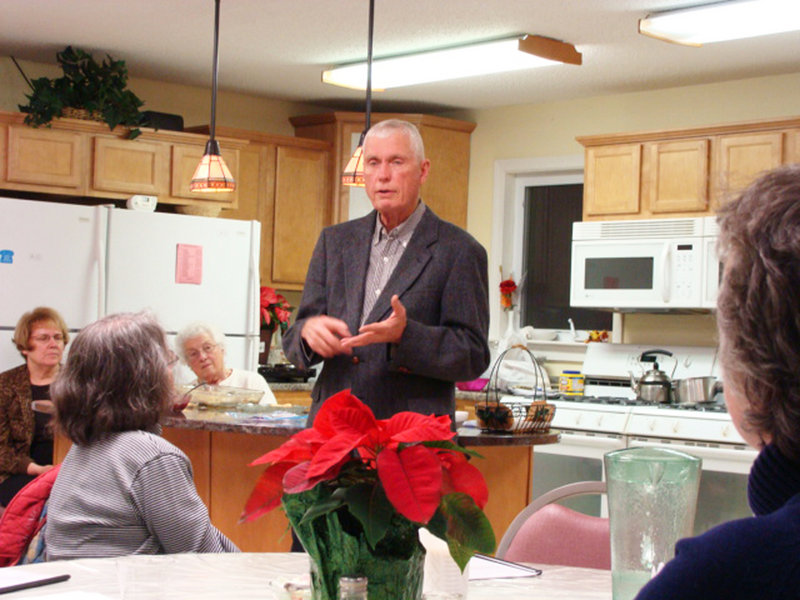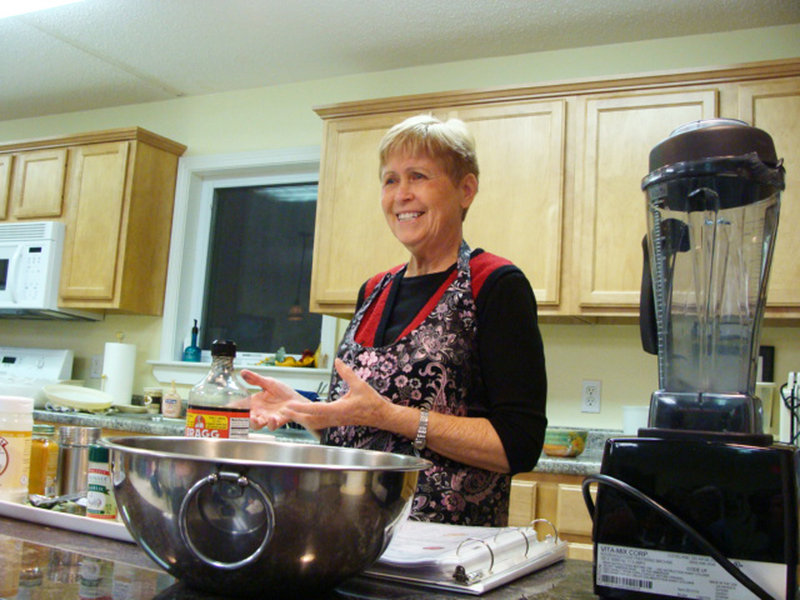Retired surgeon Dr. Gaylen Johnson has looked inside our veins and our digestive tracks, and the view isn’t pretty.
“During my 40 years of surgery, I would say the vast majority of conditions I dealt with surgically were preventable,” he said.
Whether he was removing a gallbladder, inserting a dialysis shunt for a diabetic patient or cutting away a cancerous mass from someone’s colon, Johnson said, “these are totally related to the types of diets people eat.”
Throughout his practice, Johnson advised patients that a diet centered on whole plant foods coupled with plenty of exercise leads to good health.
Today, science is catching up with the advice Johnson has been giving out to patients for years.
“In the last 15 or 20 years, there’s been an avalanche of information every week (linking diet and health),” he said, “which has given the scientific basis for what a growing number of people have adopted as a new lifestyle.
“In the 1960s, the Journal of the American Medical Association published an editorial, and in that article, they stated that 90 percent of heart disease is preventable. Nowadays, we know that 70 percent of cancer is preventable, 90 to 95 percent of diabetes is preventable, and obesity is almost totally preventable.”
Even though he’s now retired, Johnson isn’t sitting back and lamenting the sad state of the standard American diet. Instead, he and his wife, Kitty, continue to take concrete steps to help people eat better.
For years, the pair has conducted vegetarian cooking classes, and will offer two in Bath — one this Tuesday and another on March 27. The classes feature a talk about the connection between health and diet, and a cooking demonstration.
“My wife is the world’s best cook,” Johnson said.
Kitty will use her culinary prowess to tempt attendees with tasty vegan recipes constructed entirely from plants.
Tuesday’s menu includes cream of broccoli soup, crunchy rice with mushrooms and vegetables, peas and peanut salad, and maple walnut cookies.
On March 27, attendees will learn how to make red lentil soup, tofu a la king, Mexican baked potatoes with tofu sour cream and other toppings, homemade salsa, tofu “cheese” sauce and nutty buddy pie.
“At home, we have a lot of legumes and soups,” Kitty said. “The broccoli soup has cashew nuts to make the sauce. I like the cashew nuts, because it’s a whole food and it’s filled with fiber.”
The couple first tried Mexican baked potatoes in Tasmania, of all places.
“It’s very good, and we’ve made it many times since then,” Kitty said. Some of her favorite toppings for the dish include pinto beans, lettuce, tomatoes, onions, olives, avocado and peppers.
Kitty, who makes her own bread, said zucchini casserole, tofu stuffed shells, vegetable pot pie, sweet potato souffle, pecan patties and baked potato fries are among the dishes she often cooks at home.
Breakfast, which Kitty describes as their “biggest meal of the day,” can take many forms. It might include cooked cereal, granola, blueberry pancakes or whole grain waffles.
Another favorite is scrambled tofu, which Kitty said once caused a house guest to think he was eating scrambled eggs.
Her recipe includes drained and mashed tofu seasoned with turmeric, onion powder, garlic powder, parsley, nutritional yeast and herb seasoning traditionally used with chicken.
She says onions and peppers can be added, and the entire dish comes together quickly in a frying pan.
“Most people don’t know that people who are plant-based dieters have a much wider variety of foods to choose from than people who eat animal products,” Johnson said.
The Johnsons both adopted an ovo-lacto vegetarian diet as teenagers. In the past decade, the pair switched to a vegan diet.
After Johnson completed his medical training at Loma Linda University in California, the couple traveled to Ethiopia and worked at mission hospitals in the country for five years. They found plenty to do in the famine-ravaged country, where they treated patients for malnutrition, communicable diseases and parasites.
However, they rarely encountered heart disease, cancer, diabetes or any of the other lifestyle diseases so prevalent in America and other nations that eat a diet based on meat, eggs and dairy.
“Their diet was almost entirely of plant origin,” Johnson said. “In poor countries, they cannot afford animal foods. Those are expensive. They used some milk and eggs and meat on occasion, usually for special events.
“Most of their food consisted of the vegetables they could raise, some fruit and whole grains, such as teff.”
It was also during their time in Ethiopia that their eyes were opened to how many resources it takes to produce animal-based foods.
“As far as the production of food is concerned, you can produce a pound of plant food with one-tenth of the energy used to produce a pound of animal food,” Johnson said. “It has tremendous bearing on world health.”
The Johnsons may be thinking globally, but they’re acting locally.
Johnson said the knowledge he’s gained about the links between the standard American diet and disease “propels you into sharing with people that these are not inevitable things that happen to them. They have a choice of what they want their future to be.”
Staff Writer Avery Yale Kamila can be contacted at 791-6297 or at: akamila@pressherald.com
Twitter: AveryYaleKamila
Send questions/comments to the editors.




Success. Please wait for the page to reload. If the page does not reload within 5 seconds, please refresh the page.
Enter your email and password to access comments.
Hi, to comment on stories you must . This profile is in addition to your subscription and website login.
Already have a commenting profile? .
Invalid username/password.
Please check your email to confirm and complete your registration.
Only subscribers are eligible to post comments. Please subscribe or login first for digital access. Here’s why.
Use the form below to reset your password. When you've submitted your account email, we will send an email with a reset code.